Firm Dynamics and Employment Outcomes
In a market economy, firm foundations and closures are important drivers of resource (re)allocation, structural change, and economic development which is particularly important with respect to the economic transformation of East Germany from a state-directed to a market economy. At the same time, job displacement coming along with structural change may have serious consequences for affected employees, such as unemployment, earnings losses, or lower job quality in a new job. This research group uses microeconometric methods to analyze foundation, evolution, and failure of firms, the amount and quality of jobs created by new firms and the consequences of firm closures for employees, in particular in terms of labor market outcomes such as employment and wages.
Research Cluster
Productivity and InstitutionsYour contact

- Department Structural Change and Productivity
EXTERNAL FUNDING
01.2020 ‐ 06.2024
The Rise of Populist Parties in Europe: The Dark Side of Globalization and Technological Change?
Globalisation may have increased prosperity in general, but has also led to unemployment, wage inequality, outward migration and, thus, ageing populations in many European regions. This project examines whether these economic burdens lead to votes for populist parties.
01.2019 ‐ 06.2022
MICROPROD („Raising EU Productivity: Lessons from Improved Micro Data“)
The goal of MICROPROD is to contribute to a greater understanding of the challenges brought about in Europe by the fourth industrial revolution and the associated ‘productivity puzzle’ in a context of globalisation and digitisation, and to provide alternative policy options to better address these challenges.
This project has received funding from the European Union’s Horizon 2020 research and innovation programme under grant agreement No 764810.
07.2018 ‐ 12.2020
Firm Wage Differentials in Imperfect Labour Markets: The Role of Market Power and Industrial Relations in Rent Splitting between Workers and Firms
The main purpose of this proposal is to grasp a firmer understanding of how employment rents are split between workers and employers in imperfect labour markets and how labour market institutions, such as unions and works councils, influence the distribution of rents. In that it not only promises new insights into the wage formation process and the likely consequences of important labour market trends like falling unionisation and worker codetermination, but also promises to inform important public policy debates, such as which rights should be granted to organised labour.
02.2019 ‐ 09.2019
Evaluation of the IAB Establishment Panel 2018 and Preparation of a Results Report for West and East Germany
Final report: Fehlende Fachkräfte in Deutschland – Unterschiede in den Betrieben und mögliche Erklärungsfaktoren: Ergebnisse aus dem IAB-Betriebspanel 2018. IAB-Forschungsbericht 10/2019. (in German, English abstract available)
04.2016 ‐ 03.2019
Wage and Employment Effects of Bankruptcies
The project analyzes the process and the consequences of firm failure. For the first time, evidence on the consequences of small firms’ bankruptcy on employees’ earnings and wages is provided. The project e.g. shows that employees of small firms are more likely to see their employer failing but, at the same time, face smaller earnings and wage losses than employees displaced from larger firms. Check the below research articles for further insights.
01.2018 ‐ 12.2018
Evaluation of the IAB Establishment Panel 2017 and Preparation of a Results Report for West and East Germany
Final report: Lohnunterschiede zwischen Betrieben in Ost- und Westdeutschland: Ausmaß und mögliche Erklärungsfaktoren. Ergebnisse aus dem IAB-Betriebspanel 2017. IAB-Forschungsbericht 6/2018. (in German, English abstract available)
01.2017 ‐ 09.2017
Evaluation of the IAB Establishment Panel 2016 and Preparation of a Results Report for West and East Germany
Final report: Produktivitätsunterschiede zwischen West- und Ostdeutschland und mögliche Erklärungsfaktoren. Ergebnisse aus dem IAB-Betriebspanel 2016. IAB-Forschungsbericht 16/2017. (in German, English abstract available)
Refereed Publications
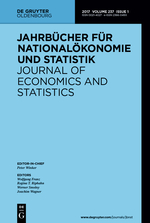
Robot Adoption at German Plants
in: Jahrbücher für Nationalökonomie und Statistik, forthcoming
Abstract
Using a newly collected dataset at the plant level from 2014 to 2018, we provide the first microscopic portrait of robotization in Germany and study the correlates of robot adoption. Our descriptive analysis uncovers five stylized facts: (1) Robot use is relatively rare. (2) The distribution of robots is highly skewed. (3) New robot adopters contribute substantially to the recent robotization. (4) Robot users are exceptional. (5) Heterogeneity in robot types matters. Our regression results further suggest plant size, high-skilled labor share, exporter status, and labor shortage to be strongly associated with the future probability of robot adoption.
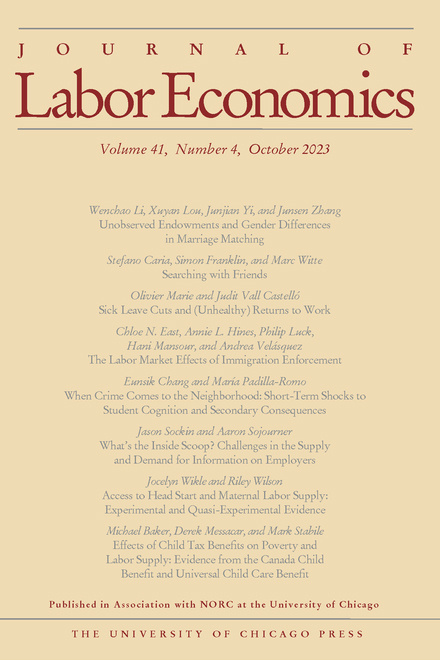
Industry Mix, Local Labor Markets, and the Incidence of Trade Shocks
in: Journal of Labor Economics, forthcoming
Abstract
We analyze how skill transferability and the local industry mix affect the adjustment costs of workers hit by a trade shock. Using German administrative data and novel measures of economic distance we construct an index of labor market absorptiveness that captures the degree to which workers from a particular industry are able to reallocate into other jobs. Among manufacturing workers, we find that the earnings loss associated with increased import exposure is much higher for those who live in the least absorptive regions. We conclude that the local industry composition plays an important role in the adjustment processes of workers.
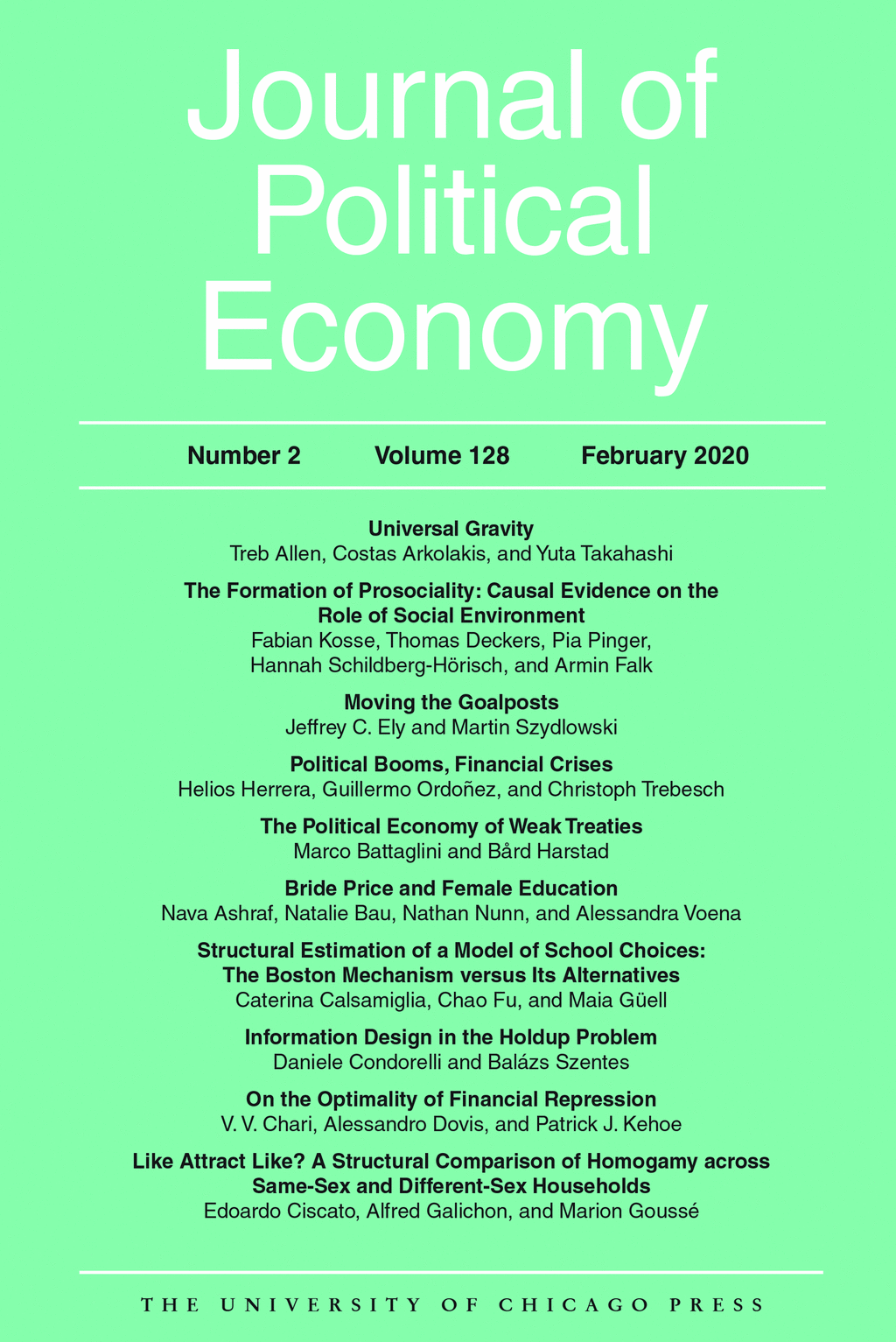
Can Mentoring Alleviate Family Disadvantage in Adolescence? A Field Experiment to Improve Labor-Market Prospects
in: Journal of Political Economy, forthcoming
Abstract
We study a mentoring program that aims to improve the labor-market prospects of school-attending adolescents from disadvantaged families by offering them a university-student mentor. Our RCT investigates program effectiveness on three outcome dimensions that are highly predictive of later labor-market success: math grades, patience/social skills, and labor-market orientation. For low-SES adolescents, the mentoring increases a combined index of the outcomes by over half a standard deviation after one year, with significant increases in each dimension. Part of the treatment effect is mediated by establishing mentors as attachment figures who provide guidance for the future. Effects on grades and labor-market orientation, but not on patience/social skills, persist three years after program start. By that time, the mentoring also improves early realizations of school-to-work transitions for low-SES adolescents. The mentoring is not effective for higher-SES adolescents. The results show that substituting lacking family support by other adults can help disadvantaged children at adolescent age.
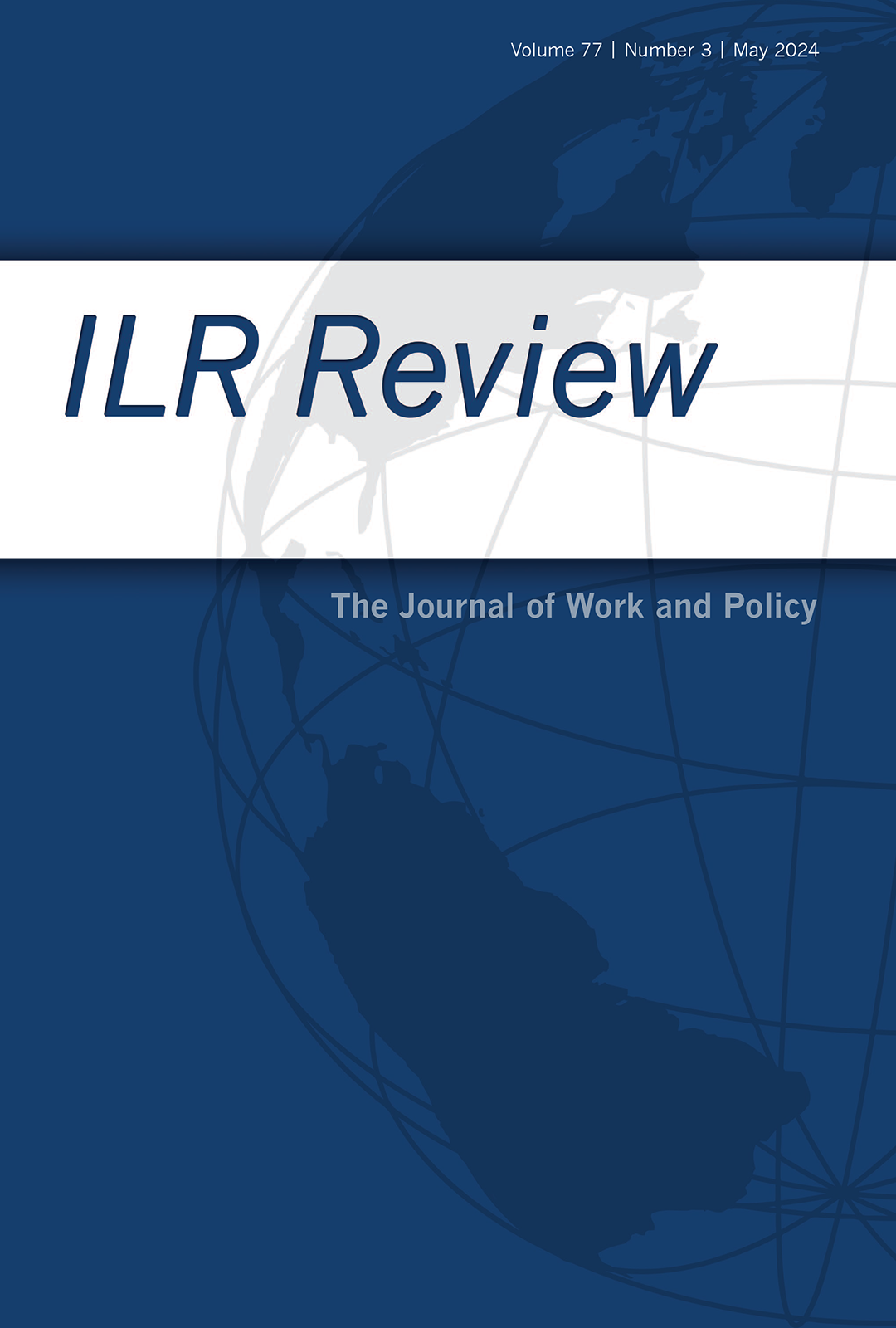
Organized Labor, Labor Market Imperfections, and Employer Wage Premia
in: ILR Review, No. 3, 2024
Abstract
This article examines how collective bargaining through unions and workplace codetermination through works councils relate to labor market imperfections and how labor market imperfections relate to employer wage premia. Based on representative German plant data for the years 1999-2016, the authors document that 70% of employers pay wages below the marginal revenue product of labor and 30% pay wages above that level. Findings further show that the prevalence of wage markdowns is significantly smaller when organized labor is present, and that the ratio of wages to the marginal revenue product of labor is significantly larger. Finally, the authors document a close link between labor market imperfections and mean employer wage premia, that is, wage differences between employers corrected for worker sorting.

Unions as Insurance: Workplace Unionization and Workers' Outcomes During COVID-19
in: Industrial Relations: A Journal of Economy and Society, No. 2, 2024
Abstract
We investigate to what extent workplace unionization protects workers from external shocks by preventing involuntary job separations. Using the COVID-19 pandemic as a plausibly exogenous shock hitting the whole economy, we compare workers who worked in unionized and non-unionized workplaces directly before the pandemic in a difference-in-differences framework. We find that unionized workers were substantially more likely to remain working for their pre-COVID employer and to be in employment. This greater employment stability was not traded off against lower working hours or labor income.
Working Papers
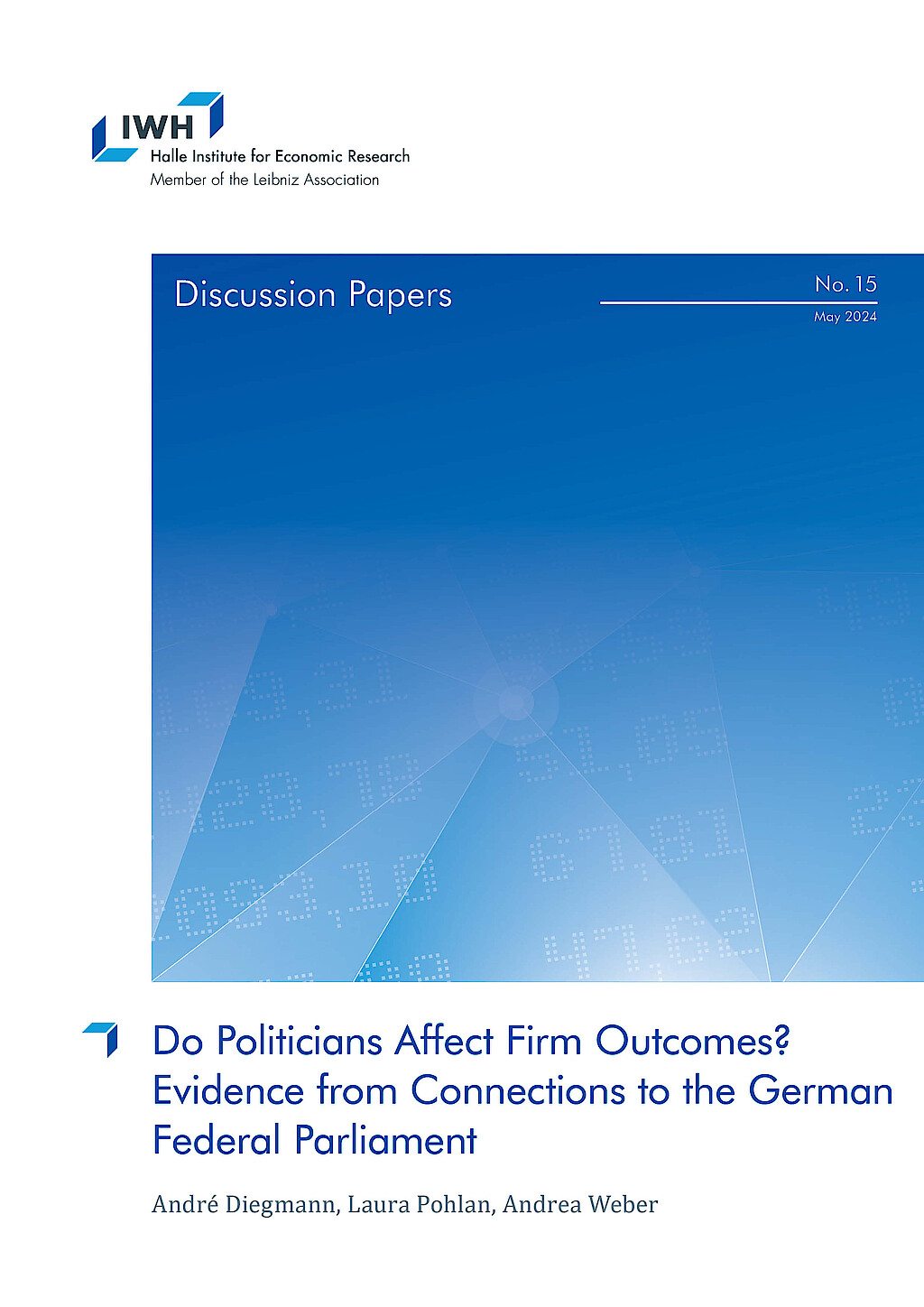
Do Politicians Affect Firm Outcomes? Evidence from Connections to the German Federal Parliament
in: IWH Discussion Papers, No. 15, 2024
Abstract
We study how connections to German federal parliamentarians affect firm dynamics by constructing a novel dataset to measure connections between politicians and the universe of firms. To identify the causal effect of access to political power, we exploit (i) new appointments to the company leadership team and (ii) discontinuities around the marginal seat of party election lists. Our results reveal that connections lead to reductions in firm exits, gradual increases in employment growth without improvements in productivity. The economic effects are mediated by better credit ratings while access to subsidies or procurement contracts are documented to be of lower importance.
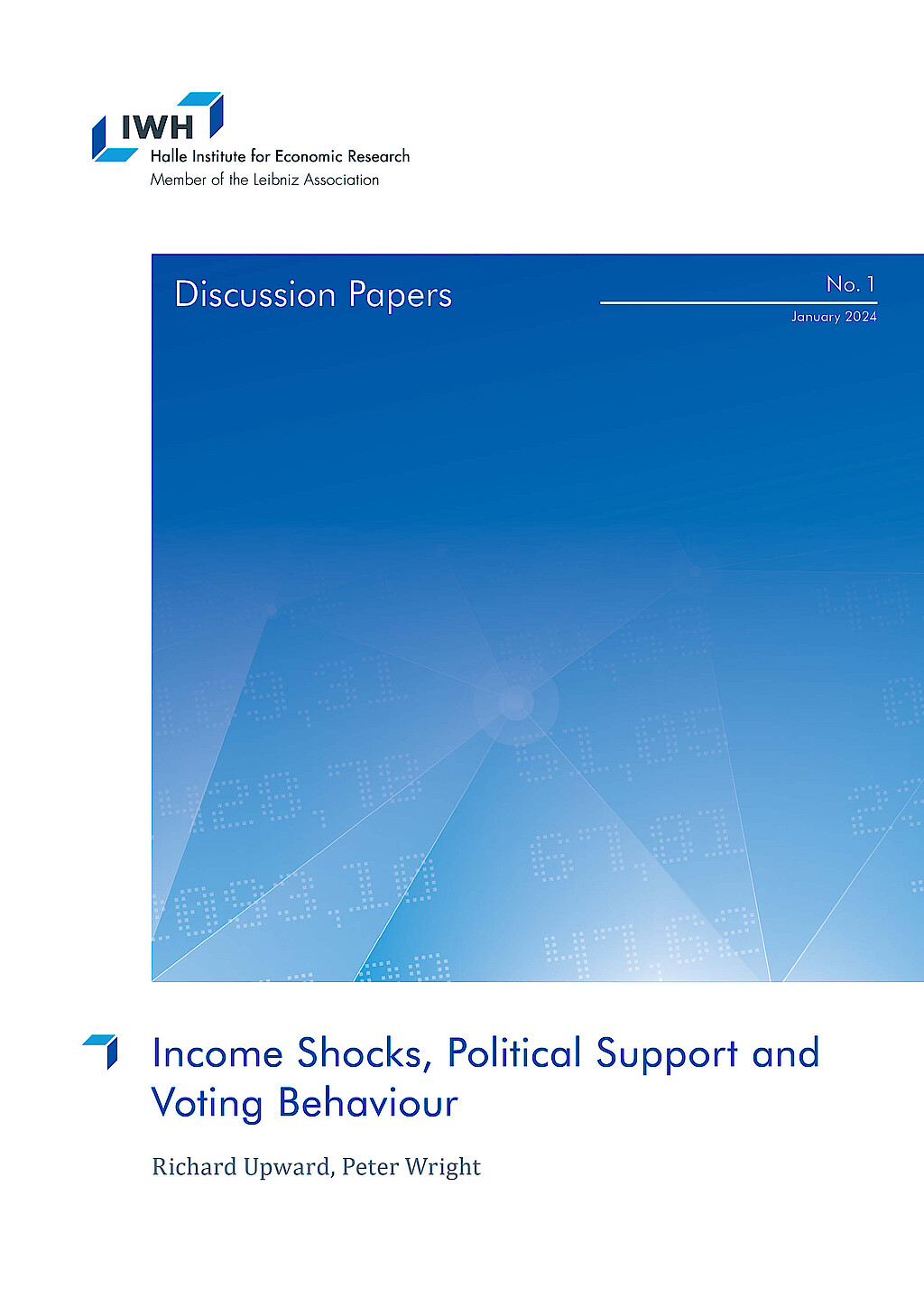
Income Shocks, Political Support and Voting Behaviour
in: IWH Discussion Papers, No. 1, 2024
Abstract
We provide new evidence on the effects of economic shocks on political support, voting behaviour and political opinions over the last 25 years. We exploit a sudden, large and long-lasting shock in the form of job loss and trace out its impact on individual political outcomes for up to 10 years after the event. The availability of detailed information on households before and after the job loss event allows us to reweight a comparison group to closely mimic the job losers in terms of their observable characteristics, pre-existing political support and voting behaviour. We find consistent, long-lasting but quantitatively small effects on support and votes for the incumbent party, and short-lived effects on political engagement. We find limited impact on the support for fringe or populist parties. In the context of Brexit, opposition to the EU was much higher amongst those who lost their jobs, but this was largely due to pre-existing differences which were not exacerbated by the job loss event itself.
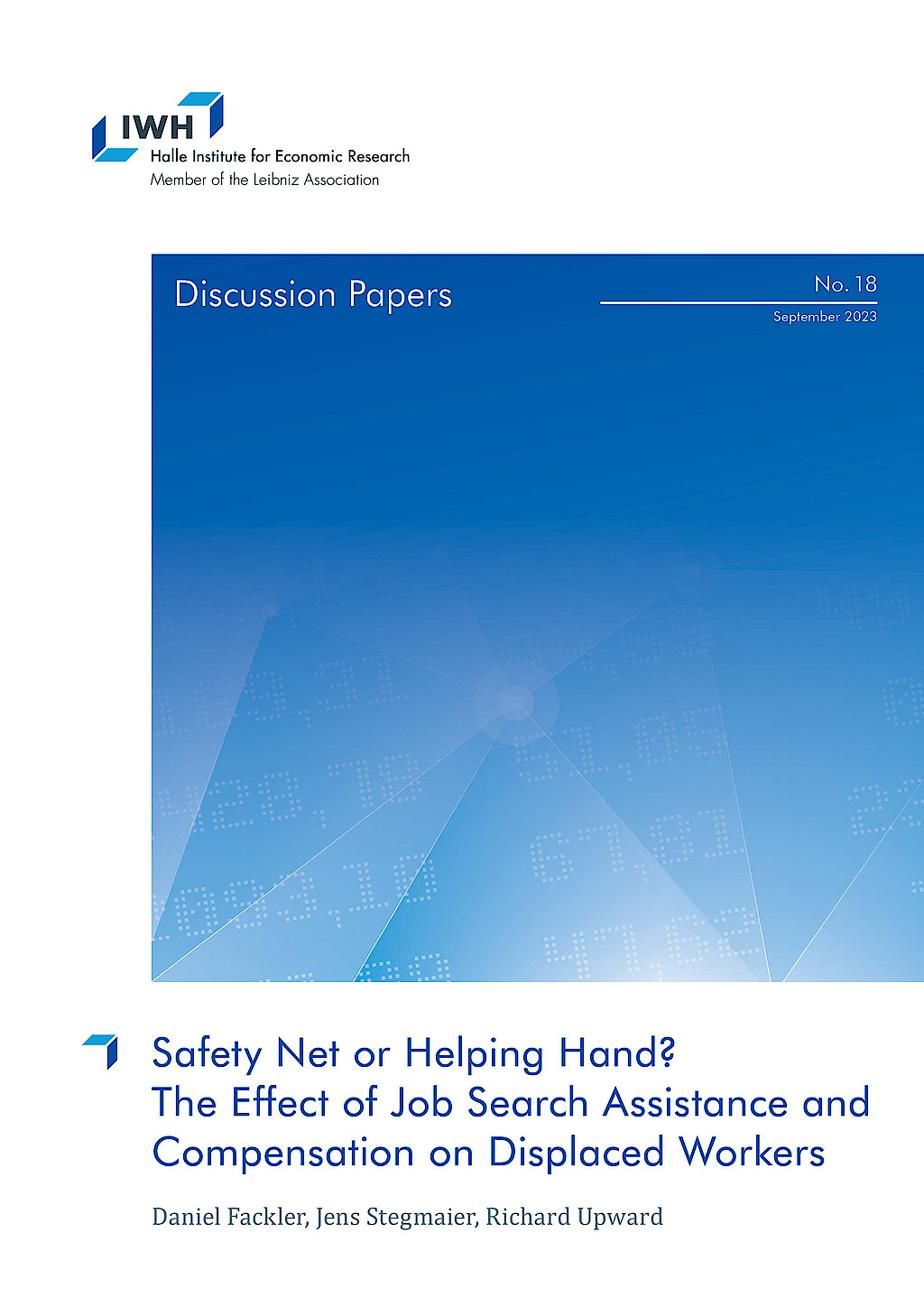
Safety Net or Helping Hand? The Effect of Job Search Assistance and Compensation on Displaced Workers
in: IWH Discussion Papers, No. 18, 2023
Abstract
We provide the first systematic evidence on the effectiveness of a contested policy in Germany to help displaced workers. So-called “transfer companies” (<i>Transfergesellschaften</i>) employ displaced workers for a fixed period, during which time workers are provided with job-search assistance and are paid a wage which is a substantial fraction of their pre-displacement wage. Using rich and accurate data on workers’ employment patterns before and after displacement, we compare the earnings and employment outcomes of displaced workers who entered transfer companies with those that did not. Workers can choose whether or not to accept a position in a transfer company, and therefore we use the availability of a transfer company at the establishment level as an IV in a model of one-sided compliance. Using an event study, we find that workers who enter a transfer company have significantly worse post-displacement outcomes, but we show that this is likely to be the result of negative selection: workers who lack good outside opportunities are more likely to choose to enter the transfer company. In contrast, ITT and IV estimates indicate that the use of a transfer company has a positive and significant effect on employment rates five years after job loss, but no significant effect on earnings. In addition, the transfer company provides significant additional compensation to displaced workers in the first 12 months after job loss.

Committing to Grow: Privatizations and Firm Dynamics in East Germany
in: IWH Discussion Papers, No. 17, 2023
Abstract
This paper investigates a unique policy designed to maintain employment during the privatization of East German firms after the fall of the Iron Curtain. The policy required new owners of the firms to commit to employment targets, with penalties for non-compliance. Using a dynamic model, we highlight three channels through which employment targets impact firms: distorted employment decisions, increased productivity, and higher exit rates. Our empirical analysis, using a novel dataset and instrumental variable approach, confirms these findings. We estimate a 22% points higher annual employment growth rate, a 14% points higher annual productivity growth, and a 3.6% points higher probability of exit for firms with binding employment targets. Our calibrated model further demonstrates that without these targets, aggregate employment would have been 15% lower after 10 years. Additionally, an alternative policy of productivity investment subsidies proved costly and less effective in the short term.
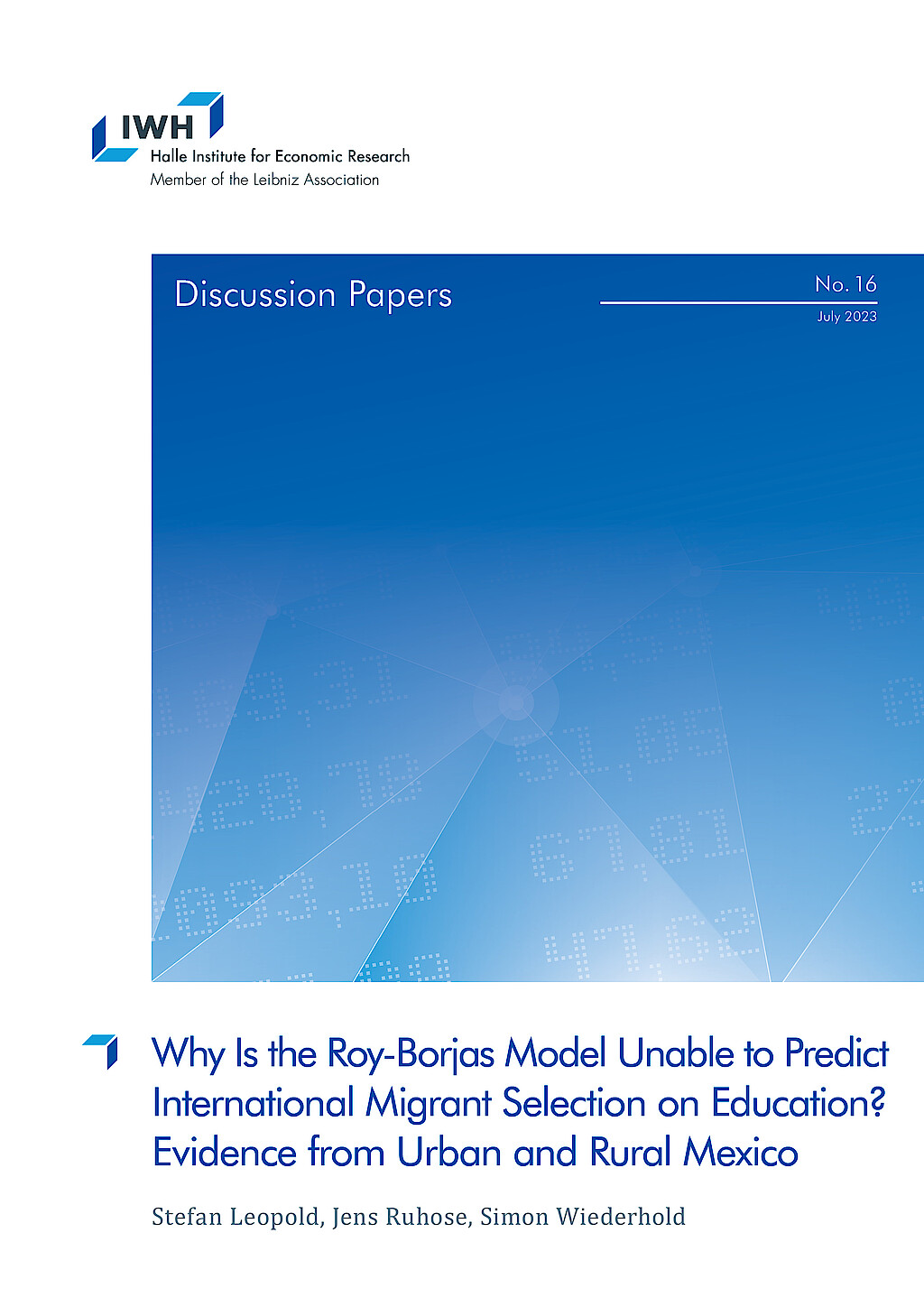
Why Is the Roy-Borjas Model Unable to Predict International Migrant Selection on Education? Evidence from Urban and Rural Mexico
in: IWH Discussion Papers, No. 16, 2023
Abstract
The Roy-Borjas model predicts that international migrants are less educated than nonmigrants because the returns to education are generally higher in developing (migrant-sending) than in developed (migrant-receiving) countries. However, empirical evidence often shows the opposite. Using the case of Mexico-U.S. migration, we show that this inconsistency between predictions and empirical evidence can be resolved when the human capital of migrants is assessed using a two-dimensional measure of occupational skills rather than by educational attainment. Thus, focusing on a single skill dimension when investigating migrant selection can lead to misleading conclusions about the underlying economic incentives and behavioral models of migration.
















